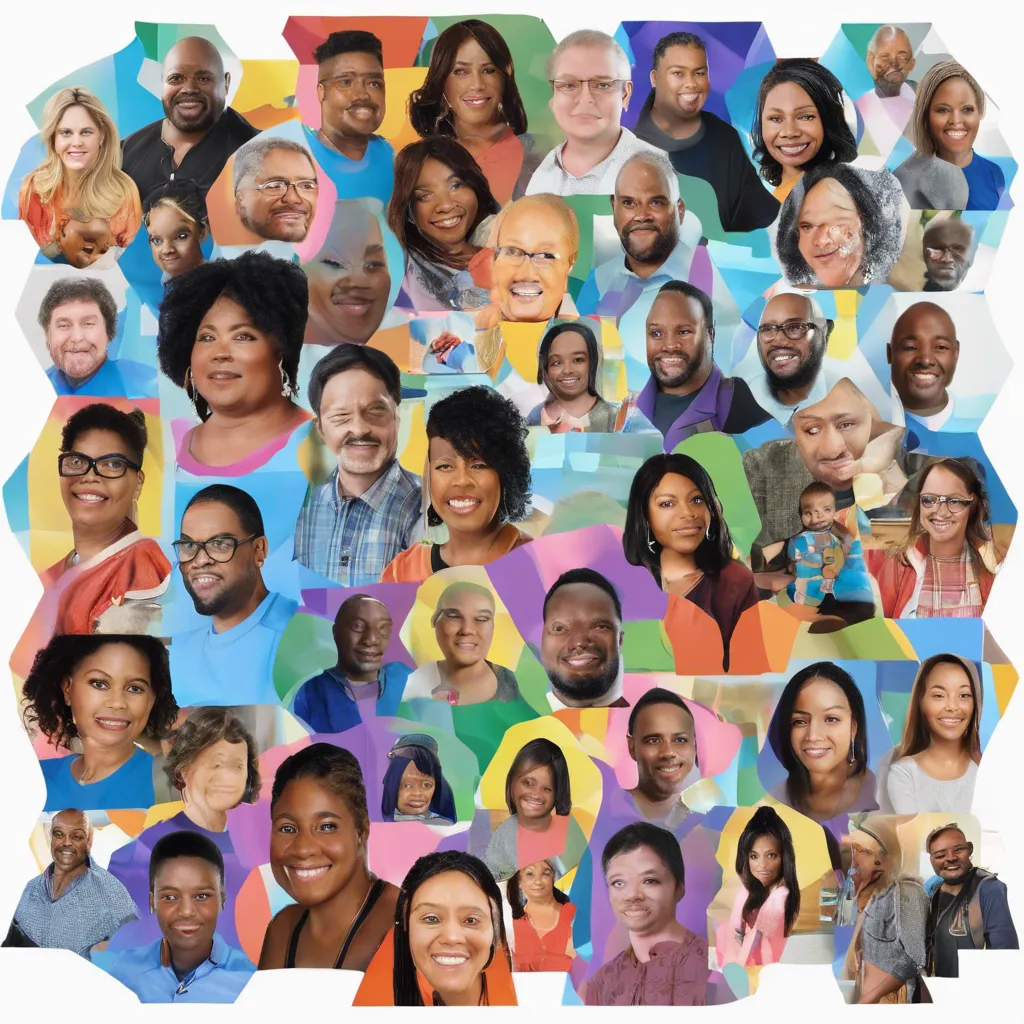Table of contents
- The Surge of Social Media Usage in Healthcare
- Creating a Network for People Impacted by Diabetes
- Fueling Change: Promoting Diabetes Education and Advocacy
- Unleashing the Power of Collaboration: Strengthening the Relationship between Healthcare Professionals and Patients
- Empowering diabetes management with the help of social media influencers
- Unlocking the Potential: Exploring Future Opportunities and Addressing Challenges
In today's digital age, social media has become an integral part of our lives. But beyond its ability to connect people, it has also played a significant role in raising awareness and providing support for various health conditions, including diabetes. This article explores the profound impact of social media platforms in promoting diabetes awareness, fostering a sense of community, and offering valuable resources to individuals living with this chronic illness.
Social media has revolutionized the way we access health-related information and support. With its widespread usage, it has become a powerful platform for sharing knowledge, resources, and experiences. Users can easily connect with healthcare professionals, join support groups, and access up-to-date health information. Social media platforms provide a space for individuals to share their health journeys, seek advice, and find solace in a community of people going through similar experiences. It has accelerated the dissemination of information, empowered patients, and facilitated the exchange of ideas between patients, medical professionals, and researchers.
Creating a Network for People Impacted by Diabetes
Social media networks for individuals with diabetes provide a sense of community and support by connecting people facing similar challenges. It allows for sharing experiences, tips, and advice, fostering a supportive environment for managing the condition.
Social media has revolutionized the way organizations and healthcare professionals share educational resources and information about diabetes. By leveraging the power of social media platforms, they are able to reach a wider audience and engage with individuals in a more interactive and personalized manner. Here are some key ways in which social media is utilized for this purpose:
- Creating awareness and promoting diabetes education campaigns
- Sharing informative articles, blog posts, and research findings
- Providing updates on new treatment options and advancements in diabetes care
- Hosting live webinars and online Q&A sessions with healthcare professionals
- Facilitating peer support and connecting individuals living with diabetes
- Sharing success stories and inspiring testimonials
- Fostering a sense of community and breaking the stigma surrounding diabetes
- Promoting healthy lifestyle choices and offering tips for managing diabetes
- Encouraging dialogue and discussion around diabetes-related topics
- Connecting patients with local support groups and resources
Unleashing the Power of Collaboration: Strengthening the Relationship between Healthcare Professionals and Patients
Social media has revolutionized communication and collaboration, enabling healthcare professionals and patients to connect and interact directly like never before. Here are the key ways in which social media has empowered this relationship:
- Improved access to healthcare information and resources: Social media platforms have become rich sources of medical knowledge, allowing patients to access trustworthy information and gain insights into their health conditions.
- Enhanced patient engagement and self-management: Social media provides platforms where patients can actively engage in discussions, share their experiences, and seek support from both healthcare professionals and fellow patients. This helps patients better manage their conditions and promotes self-care.
- Real-time communication and remote monitoring: Healthcare professionals can use social media to communicate directly with patients, answer questions, offer advice, and provide remote monitoring. This enables timely interventions, proactive care, and continuous support.
- Empowering patient advocacy and education: Social media allows patients to advocate for their rights and engage with healthcare policy discussions. It also serves as a platform to educate patients about preventive measures, treatment options, and healthcare advancements.
- Collaboration and knowledge sharing among healthcare professionals: Social media networks like professional forums and online communities foster collaboration and knowledge sharing among healthcare professionals. This facilitates interdisciplinary communication, problem-solving, and professional development.
Social media influencers play a significant role in promoting healthy lifestyle choices and diabetes management strategies by leveraging their influence to raise awareness, share personal experiences, and provide practical tips and resources to their followers, empowering them to take control of their health.
Unlocking the Potential: Exploring Future Opportunities and Addressing Challenges
Social media has revolutionized the way we communicate and connect with others. Its influence and reach have the potential to greatly advance diabetes awareness and support. However, as we delve into the future of utilizing social media for this purpose, we must also consider the challenges that arise.
- Enhanced reach and accessibility
- Personalized diabetes education
- Real-time support networks
- Data privacy and security
- Misinformation and fake news
- Reaching diverse populations
- Maintaining authenticity and trust
- Balancing online and offline engagement
In conclusion, social media has proven to be a powerful tool in raising diabetes awareness and providing support for those living with the condition. Through the use of platforms such as Facebook, Twitter, and Instagram, individuals are able to connect, share experiences, and access valuable resources. The reach and accessibility of social media allow for a wide dissemination of information, making it easier for individuals to learn about the condition and engage in discussions. Additionally, social media communities offer emotional support and encouragement, helping individuals cope with the challenges of managing diabetes. Overall, social media plays a crucial role in empowering individuals with diabetes and promoting understanding among the wider population.
Frequently asked questions related to diabetes awareness and support
How does social media impact diabetes awareness?
Social media provides a platform for sharing information and personal experiences, which helps raise awareness about diabetes and its management. It allows individuals to share their stories and connect with others who have similar experiences, creating a sense of community and support.
Can social media influence behavior change among individuals with diabetes?
Yes, social media can influence behavior change among individuals with diabetes. Through social media platforms, people can access educational content, motivational messages, and real-life success stories that can inspire them to make positive changes in their lifestyle and diabetes management.
What role does social media play in supporting those with diabetes?
Social media offers a space for people with diabetes to find support from others facing the same challenges. It provides a platform for sharing tips, resources, and encouragement. Additionally, it allows for the formation of online support groups where individuals can exchange advice and provide emotional support.
Are there any drawbacks to using social media for diabetes awareness and support?
While social media can be beneficial, it also has some drawbacks. There is a risk of misinformation and inaccurate advice being spread. Additionally, not all individuals may have access to social media or feel comfortable using it, limiting their ability to benefit from the online diabetes community.
How can healthcare professionals utilize social media for diabetes education?
Healthcare professionals can use social media to share accurate and reliable information about diabetes prevention, management, and treatment. They can also engage with patients and the public by answering questions, providing guidance, and debunking myths. Social media can help reach a larger audience and increase diabetes education efforts.







